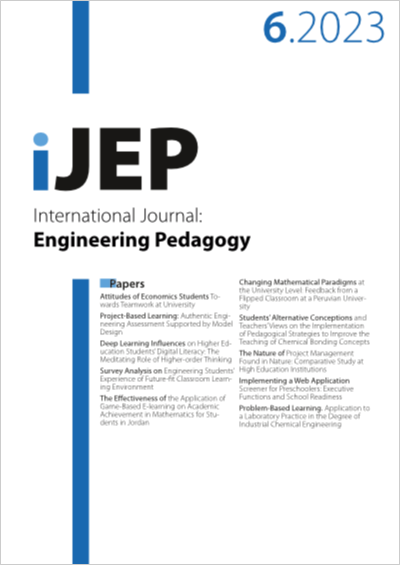The Nature of Project Management Found in Nature
Comparative Study at High Education Institutions
DOI:
https://doi.org/10.3991/ijep.v13i6.39199Keywords:
achievement test, biomimicry, forest ecosystem, focus group, game-based learning, project ecosystemAbstract
This research’s urgency is evident from the growing gap between students’ expectations and what universities are able or willing to provide. The theoretical background is based on constructivist learning theories and a praxiological approach. The parallel group method laid the basis of this study design when comparing project management students from two universities, A and B. In addition, a specific pedagogical experiment in the forest was implemented at University A. The experiment lasted one academic year and included a total of 179 students. Work breakdown structure, the Critical Path Method, resource management, planning, manipulative business practices, and the role of team members were demonstrated in parallel with bees, ants, bumblebees, wolves, zombie mushrooms, squirrels and orangutans. Experimental intervention at University A has led to higher point scores on achievement tests compared to University B students and brought other remarkable findings, “aha” moments and answers to the assigned research questions: What key moments increase student engagement during the class (1), and what are the findings and recommendations for future project management pedagogy (2). This study combines quantitative and qualitative methods, including bio-mimicry analogies, parallel group technique, focus groups, action- and game-based learning, achievement test, and statistical tests.
Downloads
Published
How to Cite
Issue
Section
License
Copyright (c) 2023 Karolina Macháčková

This work is licensed under a Creative Commons Attribution 4.0 International License.



